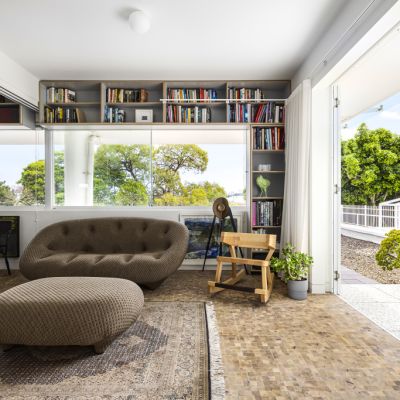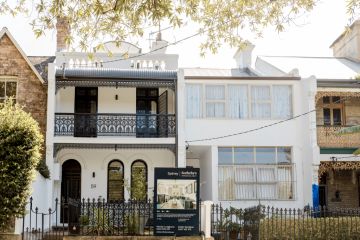No mortgage, no worries: Sydney suburbs where home buyers pay cash
Sydney home buyers are splashing millions of dollars in cash on downsizer homes, tree-change retreats and even investment properties, with no need for a mortgage.
Cash property purchases totalled $61 billion in NSW in financial year 2024, figures from settlement platform PEXA released on Tuesday showed – a 22.7 per cent jump from the previous year.

Sought-after suburbs recorded a high volume of cash purchases as long-term homeowners trade down from family homes to luxury apartments.
The highest volume of cash sales was in the Sydney CBD, at $1.687 billion total sales during the financial year. It was followed by Marsden Park, where buyers may be purchasing vacant land or investing in new homes, at $1.122 billion total, albeit at roughly half the median price per property.
Homeowners also splashed cash in well-heeled Mosman ($1.095 billion), Darling Point ($688 million), Bondi Beach (nearly $686 million) and Randwick ($527 million).
The median value of their cash purchases reached $2.7 million per home in Mosman and $2.5 million in Darling Point.
PEXA chief economist Julie Toth said buyers in wealthier suburbs were less likely to need a mortgage, and some could be getting the money from family trusts, equity in other properties or alternative financing arrangements.
“It really just reflects the high purchasing prices,” she said. “That’s largely because we’re seeing a small number of very high-value properties being purchased without an actual mortgage being raised on those purchases.
“At that very top end, people do tend to have a greater range of finance sources they can access so it’s not showing up as a mortgage.”
Toth said the most cash was spent on prestige Sydney suburbs.
In the Sydney CBD, the median cash purchase price was $1.65 million, she noted.
“But then moving out a little bit you can see Mosman, Bondi Beach … and they all have higher values and we think that’s more a story of existing homeowners moving around.
“When they move, they don’t necessarily need a mortgage. The census tells us who owns their own home outright and where they are and it’s generally a generational story; it’s older people who have had a lifetime to pay off their mortgage. So established suburbs with older wealthier residents tend to show up more often in these lists.”
Toth said the portion of cash purchases was higher in regional towns popular with retirees – more than two-thirds of purchases in Gloucester were made in cash – and were higher in areas where buyers opted to buy land first and then build later such as greenfield outer suburbs.
“They also have quite a high proportion of land-only sales. What is happening there may or may not be first home buyers, but they could be buying a block of land with cash then building later.”
The financing sequence of events can be quite complex for someone trying to do a self-build, she said. “They’re very unwilling to lend someone the amount to build a home when a home does not yet exist because that is the collateral for the home.”
On the lower north shore, Atlas director Michael Coombs is fielding enquiries from downsizers who sell their luxury family homes and buy smaller places.
“When they’re in these larger homes, there’s no hurry. They don’t owe any money on them, and they’ve gone up significantly in value,” he said. “They sell when the market suits.”
Sellers may look for a country home and a downsizer apartment. They funnel some money into their retirement savings and help their children, he said.
“When people are in a property long term, that’s their retirement – that’s where they grow their wealth,” he said.
“[Some owners] purchased 30 years ago for $3 million, and they’re selling for $30 million.”
He is also selling to expats who can pay cash to upgrade after a stint offshore, during which their Australian base has increased in value.
Buyer’s agent Rich Harvey has seen owners getting close to retirement age who have built equity and who hope to downsize and live debt-free.
“It totally transforms their life because it’s all tax-free. They can then help their children come up with a portion of the deposit, and they can move into something that’s lower maintenance, lock up and leave – they can travel,” the chief executive of propertybuyer.com.au said.
But he warned that some sellers looking for a unit and a sea-change may realise widespread high prices can prohibit them from buying as much as they hoped, especially if they face stamp duty.
He has also seen new migrants with permanent residency or Australian citizenship paying cash or wealthy businesspeople who have sold their businesses.
Some investors pay in cash, perhaps if they are retired, but he thought many could benefit from leverage instead.
We recommend
States
Capital Cities
Capital Cities - Rentals
Popular Areas
Allhomes
More










